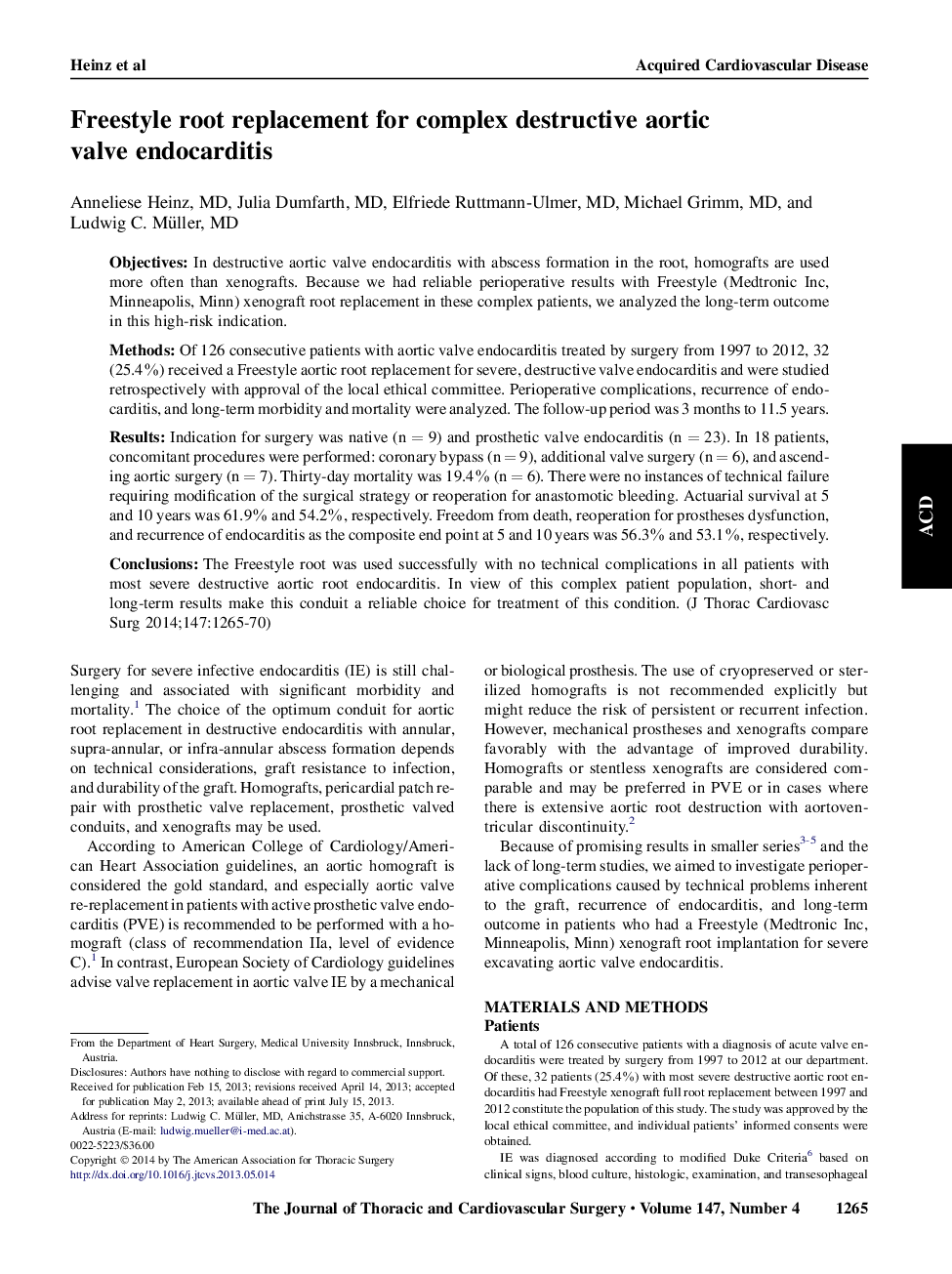| Article ID | Journal | Published Year | Pages | File Type |
|---|---|---|---|---|
| 2979738 | The Journal of Thoracic and Cardiovascular Surgery | 2014 | 6 Pages |
ObjectivesIn destructive aortic valve endocarditis with abscess formation in the root, homografts are used more often than xenografts. Because we had reliable perioperative results with Freestyle (Medtronic Inc, Minneapolis, Minn) xenograft root replacement in these complex patients, we analyzed the long-term outcome in this high-risk indication.MethodsOf 126 consecutive patients with aortic valve endocarditis treated by surgery from 1997 to 2012, 32 (25.4%) received a Freestyle aortic root replacement for severe, destructive valve endocarditis and were studied retrospectively with approval of the local ethical committee. Perioperative complications, recurrence of endocarditis, and long-term morbidity and mortality were analyzed. The follow-up period was 3 months to 11.5 years.ResultsIndication for surgery was native (n = 9) and prosthetic valve endocarditis (n = 23). In 18 patients, concomitant procedures were performed: coronary bypass (n = 9), additional valve surgery (n = 6), and ascending aortic surgery (n = 7). Thirty-day mortality was 19.4% (n = 6). There were no instances of technical failure requiring modification of the surgical strategy or reoperation for anastomotic bleeding. Actuarial survival at 5 and 10 years was 61.9% and 54.2%, respectively. Freedom from death, reoperation for prostheses dysfunction, and recurrence of endocarditis as the composite end point at 5 and 10 years was 56.3% and 53.1%, respectively.ConclusionsThe Freestyle root was used successfully with no technical complications in all patients with most severe destructive aortic root endocarditis. In view of this complex patient population, short- and long-term results make this conduit a reliable choice for treatment of this condition.
